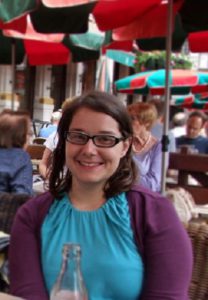by Priska Dibiasi
The Sussex Africa Centre and the Institute of Development Studies recently invited Dr Robtel Neajai Pailey from the University of Oxford to discuss her latest research at a joint event. She presented her findings at the event entitled “Liberia, Ebola, and the Pitfalls of State-building: Reimagining Public Authority ‘Inside’ and ‘Outside the Post-war State”.
Dr. Pailey argued that public authority goes beyond the domain of a state and suggests that ‘public authority’ also has a horizontal and a spacial dimension. Therefore ‘Inside’ also includes actors such as communities, non-governmental organisations, and civilians, while ‘outside’ includes the diaspora – individuals as well as organisations.
She demonstrated her argument by providing a case study of Liberia and the recent Ebola outbreak in 2014. She found that initially traditional actors of public authority were failing in their task to tackle the Ebola crisis and argues that an extended ‘public authority’ filled this vacuum for instance by offering churches, mosques or football fields as service delivery sites, by forming tasks forces, by increasing remittances as the economy was shut down during the height of the crisis.
Finally, she pointed out that the response in Liberia to the Ebola crisis is indicative of nation-building as Liberians had for the first time a ‘common enemy’ in the disease.
I found Neajai Pailey’s argument very interesting and am looking forward to reading a more detailed account of her research once it will be published in the African Affairs journal. I am particularly interested to find out more about her argument regarding the common response as indicator of nation-building and how this might connect to Charles Tilly’s (1985) argument of war-making and state-making and its possible indications for theoretical debates about the expansion of the international security discourse to include for instance threats relating to health or the environment.
—————————————————————————————————————————————–

Priska Dibiasi is an MA student in International Security at the School of Global Studies. She completed her BA in Political Management at the University of Applied Sciences Bremen, Germany. Previously, she was an intern at the Austrian Embassy in Washington, D.C. and at the Italian international development charity Help without Frontiers. Her research interests include conflict, mediation and sustainable peace (-building) and more general in the international politics of the sub-Sahara African region, the USA, Europe and Eurasia.
Priska Dibiasi is an MA student in International Security at the School of Global Studies. She completed her BA in Political Management at the University of Applied Sciences Bremen, Germany. Previously, she was an intern at the Austrian Embassy in Washington, D.C. and at the Italian international development charity Help without Frontiers.


Leave a Reply